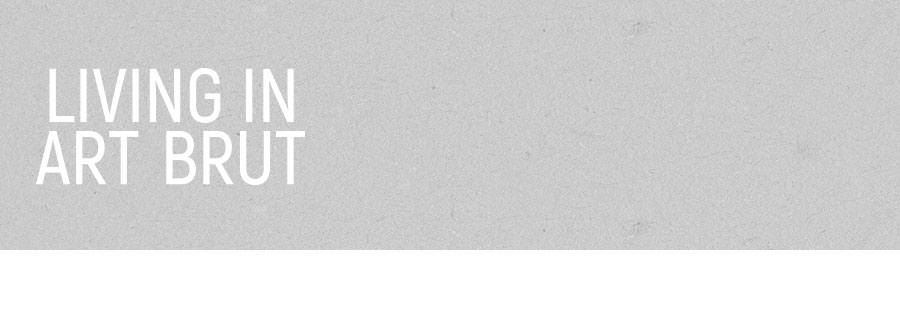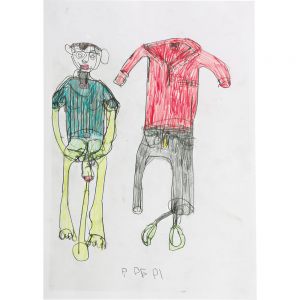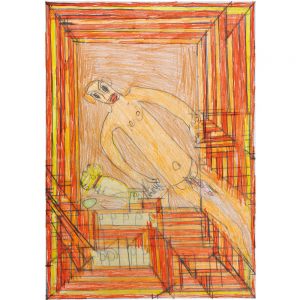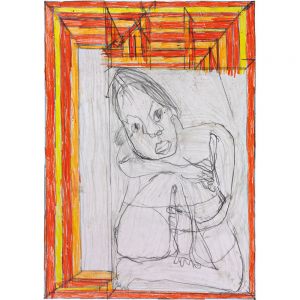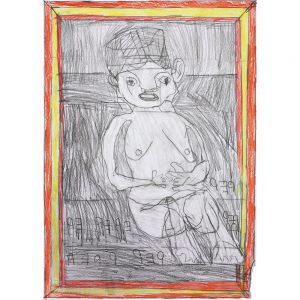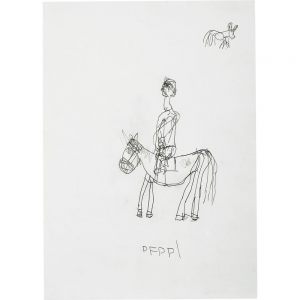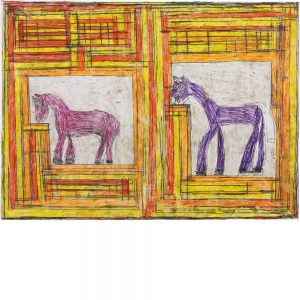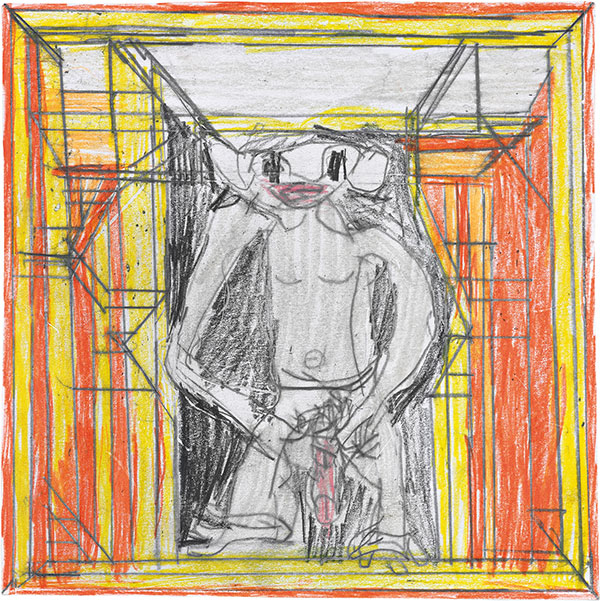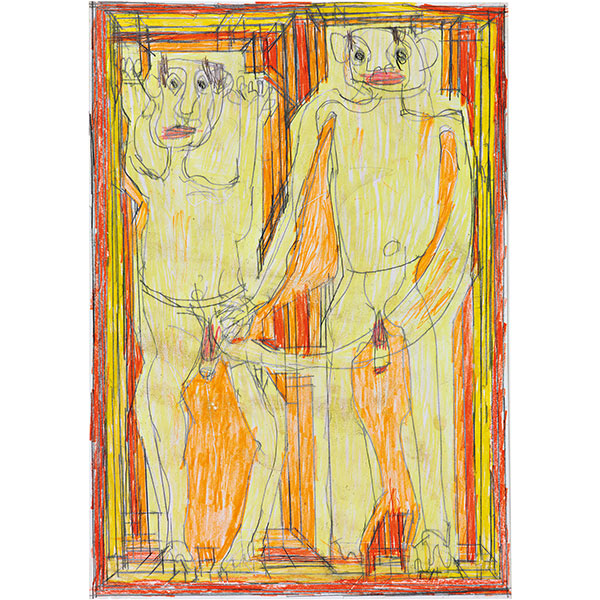Josef Hofer
*1945, Austria
Josef Hofer was born during the last two weeks of the Second World War in Wegscheid, Bavaria. His physical and intellectual disability was clearly noticeable.
He was very lucky that neither the doctor nor the midwife had reported it to the authorities – which was in violation of their legal duties – as this meant that he would have been killed and his mother would have been sterilised. His parents were aware of the dangers, as one of his father’s sisters, who had been living in a psychiatric clinic, was murdered in Hadamar in 1941. Together with his parents and his brother, who is also disabled, he grew up very isolated from others on a small farm in the northern part of the Mühlviertel region in Upper Austria. Infections of the middle ear led to his near complete deafness. Pepi – which is his nickname and how he signs his work – never went to school and never had the chance to learn sign language. 1982 – five years after the death of his father – the family moved to Kirchschlag. His cousin, Renate Sager, could take care of the family there, as she lived nearby, in Linz. In 1985 he came to Linz and spent his days at the Lebenshilfe Oberösterreich, a centre for people with disabilities. He has been living in the same centre in Ried im Innkreis since 1992. He met Elisabeth Telsnig there in 1997. She discovered him and became his mentor and artistic advisor, after having accepted a drawing class in Ried. Initially he worked very focused and hectically, as he became older he became calmer when drawing. Josef Hofer had his first solo exhibition in the Collection de l’Art Brut in 2003. He won the euward, the Award for Painting and Graphic Arts in the Context of Mental Disability, in 2004. His art focuses on male sexuality, portrayed revealingly and excessive in its expression. There is a mirror in his room at his home in Ried in which he can look at himself to some extent. His nudes, which are often fragmented in the sense of their portrayal as parts, are interpreted as his alter ego put on paper. The yellow-orange frame around the subject typically occurs in many pictures and defines their dimensions at the same time. His love of horses is depicted in impressive detail in selected paintings. The motifs in his drawings include various objects from his environment and female nudes appear in his later work.
His works can be seen in several museums and private collections such as the Collection de l’Art Brut in Lausanne, in The Museum of Everything, the collection abcd/Bruno Decharme, France, the Treger-Saint Silvestre collection, Portugal, and the Arnulf Rainer collection, Austria. As of 2021, Josef Hofer has also been represented in the 921 works of the “Donation d'Art Brut de Bruno Decharme” at the Centre Pompidou in Paris.
Website: www.josefhofer.at
Selected works


